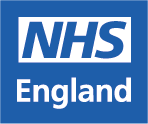Genomic Laboratory Service Re-design
Overview
NHS England is consulting on proposed changes to the way in which Genetic Laboratory services are commissioned
Why your views matter
The changes proposed to the way in which Genetic Laboratory services are commissioned in England has arisen from the
- recommendations of the Human Genomics Strategy Group (HGSG) 2012 report ‘Building on our Inheritance; Genomic technology in healthcare’ which outlined the need to consolidate existing resources to deliver ‘state of the art’ genomic laboratory services for the future
- advances in genomic technologies and the ability to use next generation sequencing and other new and emerging powerful genomic technologies will enable high throughput delivery at scale, with value for money and an improvement in patient outcomes.
The proposed introduction of Genomics Centralised Laboratory Hubs, working with Clinical Genetic Services and other Clinical Specialties, would deliver services over significant geographical areas of England and would
- Maximise utilisation of technology and expertise for genetic and genomic testing, bioinformatics, validation of genomic findings and clinical interpretation.
- Support the introduction of Genomics Local Laboratory Hubs linked to molecular pathology in the use and application of genomic technologies for testing closer to patient care
- Maximise workforce expertise and enable the development of specialist training centres for genomics for the specialist and broader workforce
- Drive improved quality by standardisation of testing and methods.
Who we are consulting with:
This consultation is open to anyone who may wish to respond. However, it is anticipated that the target audience will be those likely to be affected by these changes. This is those that work in or with genomic and genetic laboratory services currently and the clinical community who use the services they provide.
What does it mean for patients:
The changes will be fundamental to improving the NHS’s ability to prevent and predict disease, to make a precision diagnosis and to personalize treatment. This will also support reducing variability in access to genomic testing and for improve diagnostic wait for rare diseases. Laboratory testing is not a service that is directly accessed by patients but instead will provide testing to inform the decisions made about diagnosis and treatment with advice from specialists.
What are we consulting on:
The changes proposed are set out in the new draft service specification, standards and outcomes combined together into a single document and comments are invited during the course of this 12 week consultation. The service specification has been informed by experts in the field and others representing the interests of patients and the public.
During the consultation period we will be holding an open event which will provide background information and the changes that this could mean for current services.
Professor Sue Hill, Chief Scientific Officer, NHS England said “We look forward to hearing the views of as many people as possible during the next 12 weeks. This will be critical in ensuring that the NHS can procure the right high quality services to enable the genomic revolution to improve the prediction, prevention, precision diagnosis and personalised treatment for now and for future generations".
What happens next
During the consultation period we will be holding two open days on the 19 January 2014 and 19 February 2014, and further joining information will be available on this website.
Following consultation and a decision has been made about the future configuration of services; NHS England will launch a procurement exercise to ensure the right level of service is accessible to patients, regardless of where they live.
Following consultation and once a decision has been made about the future configuration of services, NHS England will launch a procurement exercise to ensure the right level of service is accessible to patients, regardless of where they live.
Audiences
- Academic/professional institutions
- Foundation trusts
- Patients
Interests
- Patient and public voice
- Reducing health inequalities
- Specialised commissioning

Share
Share on Twitter Share on Facebook